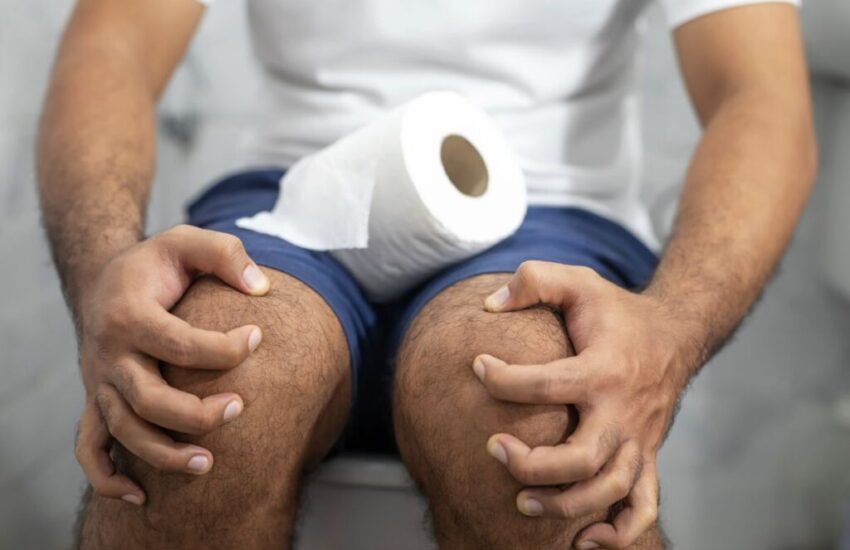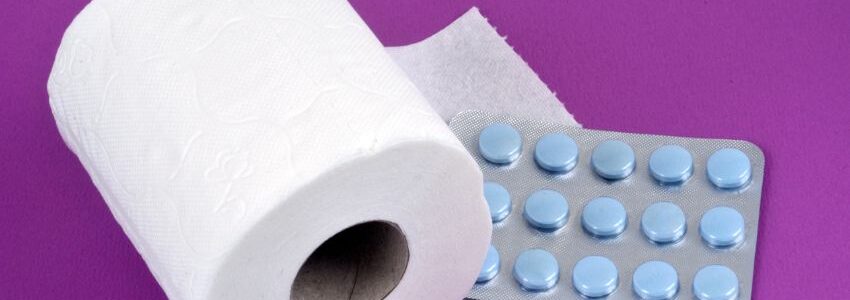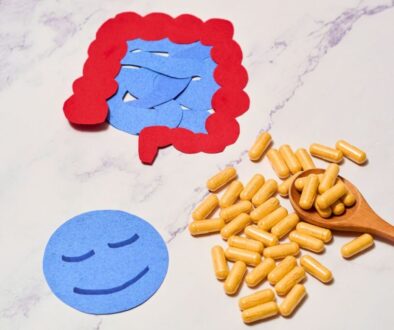Do Probiotics Make You Poop?

Published June 10, 2022
If you’re having a hard time defecating, you’ve probably turned to laxatives. But even though they’re effective for a time, they can only do so much. Besides, they can harm your digestive system in the long run.
Then maybe it’s time you try probiotics.
Wait, probiotics? Aren’t they for diarrhea? Do probiotics make you poop too?
Yes, probiotics do make you poop. In fact, it’s scientifically proven to help relieve constipation, especially if it’s caused by IBS, pregnancy, or medications. But unlike laxatives, it does not stimulate bowel movement. Instead, it regulates your digestion to help the stool pass through your body more easily.
To help you understand more about how probiotics can help with constipation, you first need to understand how they work.
Why Do Probiotics Make You Poop?
Also known as the “good bacteria”, probiotics are live microorganisms that help your body fight off bad bacteria. They are naturally present in our bodies but we can get them from foods and supplements too.
Probiotics work by restoring the balance in our microbiome, or the bacterial population in our body. This also restores our normal digestive function which, in turn, helps us have a more regular bowel movement.
The Role of Bacteria in the Digestion Process
If you didn’t know, our body is host to trillions of bacteria, both good and bad. Collectively, they are what we call our microbiome.
These clusters of bacteria are found in different parts of our body like the mouth, nose, and skin. But the largest of these bacterial populations resides in our guts.
Our gut bacteria play a vital role in our digestive function. Aside from helping digest the foods we eat, it also enables us to absorb nutrients from the foods we eat.
Certain types of gut bacteria can also digest fiber and non-digestible carbohydrates. This produces short-chain fatty acids which play a vital role in metabolism and colon health.
When the healthy balance of bacteria in your gut microbiome is disturbed, it can cause dysbiosis. The bad bacteria can take over and choke out the good ones. This, in turn, disrupts our body’s normal digestive function.
With no beneficial bacteria to digest our food or help absorb their nutrients, our digestive system cannot function properly. This leads to health issues like diarrhea, constipation, and chronic digestive disorders.
How Probiotics Can Help You Poop
As mentioned, probiotics restore the healthy balance of bacteria in your microbiota. They replenish the beneficial bacteria lost during dysbiosis.
The more good bacteria there is in your gut, the better they’ll be able to fight off their harmful counterparts. You’ll also have more bacteria to digest your food, especially non-digestible carbohydrates.
As a result, your body will also have enough supply of short-chain fatty acids. When absorbed by the body, short-chain fatty acids speed up and stimulate colon motility. This, in turn, improves our defecation frequency and stool consistency.
In short, the more good bacteria we have in our guts, the lesser is our risk for constipation.

Probiotics and Constipation: The Scientific Evidence
As I’ve said, probiotics are scientifically proven to help reduce constipation. Here are some of the scientific evidence we’ve gathered:
Constipation from IBS
A review of 24 clinical trials in 2015 found that probiotics can help relieve symptoms of irritable bowel syndrome (IBS), including constipation.
The review took into account the distension, bloating, and flatulence of those who participated in the study. They concluded that those who took probiotics have less severe IBS symptoms than those who don’t.
Another randomized clinical trial also suggests that probiotic supplementation is effective for patients suffering from IBS-induced constipation. The treatment also altered the composition of the patient’s intestinal microbiome.
Childhood Constipation
A 2017 review of six randomized clinical trials found that using probiotics significantly increased the defecation frequency in constipated children. Though the studies aren’t large enough for the findings to be conclusive.
Constipation from Pregnancy
One study in Iran sought to determine the effects of probiotic yogurt on the constipation of pregnant women. The results showed that women who were given probiotic yogurt have increased stool frequency after 4 weeks. Other constipation symptoms like straining and bowel obstructions have also improved significantly.
When to See Your Doctor
Most cases of constipation can be treated with home remedies and probiotic supplements. But if your symptoms include severe abdominal pain, sudden weight loss, and blood in your stool, it’s usually a sign of more severe health issues. When this happens, don’t hesitate to call or visit your doctor.
Benefit From The Latest Advancements In Probiotic Science With Bionaze
Bionaze is a proprietary blend of probiotics proven to promote ear, nose, and throat health, improve digestion, and support your immune system. The active ingredients BLIS K12, and BL-04 are considered among the best probiotics according to science.
Get 25% Off Your First Order when you use BIO25 at checkout!

This Content Has Been Reviewed For Factual Accuracy
This content has undergone thorough fact-checking by our team of internal experts. Learn more about the meticulous editorial standard for our website here.
ADVERTISEMENT

About The Author
Judy Ponio is a professional writer based in the Philippines. Her commitment to communicating factual content in when writing is unmatched. She works hard to cross check reputable sources to ensure her work uses accurate facts.




